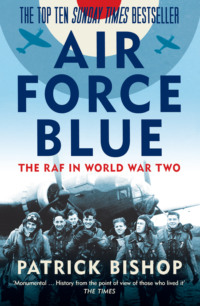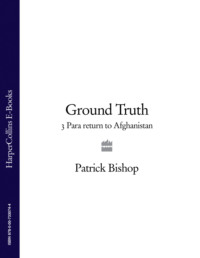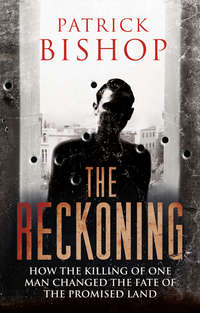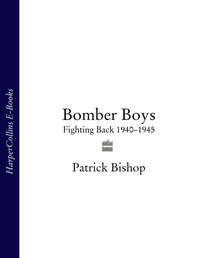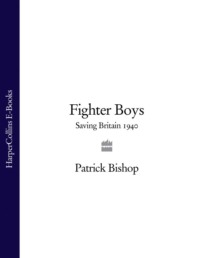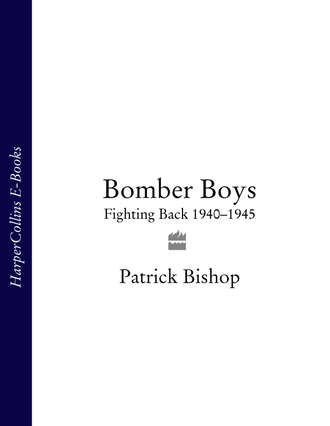
Bomber Boys: Fighting Back 1940–1945
That attitude had now changed. Hilde Marchant had been one of the first to report the calls for revenge. She had issued one of her own. ‘The Nazis added one more word to the English language – “Coventrated”,’ she wrote. ‘Let us add one more – “Berliminated”.’ Her observations had been contradicted by Harrisson in a throw-away remark at the end of his broadcast. ‘I see some reporters stressing the fact that Coventry is clamouring for reprisals,’ he said. ‘That wasn’t borne out by my own observations … it only makes Coventry realize that this sort of thing doesn’t end the war and only makes it more bitter.’
This judgement was not supported by the findings of his own teams. A fortnight after the raid they asked people in the streets of the city what they would like the government to do. ‘Knock bloody hell out of them,’ said a forty-five-year old man, described as middle class. ‘For every one he gives us, we ought to give him twenty,’ said a sixty-year-old working-class male. Another, youngish man replied. ‘We’re fighting gangsters, so we’ve got to be gangsters ourselves. We’ve been gentlemen too long.’16
Whatever gentlemanly attitudes lingered among those making Britain’s war decisions were about to disappear for the duration of the war. It was a month before the government moved to avenge Coventry. The attack took place on the night of the 16/17 December and the target was Mannheim, an industrial town that straddles the Rhine in south central Germany. There were 134 aircraft on the raid, the biggest force to be used so far. At first sight there is nothing in the operations book or subsequent intelligence reports to suggest that the purpose of the raid was any different to many that had preceded it. The order was to attack the industrial centre of the town and the primary targets were the Mannheim Motorenwerke and naval armaments factories. The clue to the special nature of the raid lay in the bombs that the aircraft were carrying. There were a few 1,000-pound bombs and many more 500- and 250-pounders, packed with high explosive and designed to knock down walls and collapse roofs. But by far the largest number of bombs were incendiaries, weighing only four pounds each but capable when dropped in sufficient numbers, as Coventry knew all too well, of setting a city ablaze.
The raid was led by eight Wellingtons which carried nothing but incendiaries in their bomb bays, flown by the most experienced crews available. The aircraft that followed them were to use the light of the fires they started as their aiming point and in the words of Sir Richard Peirse, who succeeded Portal as commander-in-chief of Bomber Command, ‘to concentrate the maximum amount of damage in the centre of the town.’ It was a perfect moonlit night over Mannheim and the returning crews thought they had done well. More than half the aircraft claimed to have hit the town. Some reported later that when they flew away at 3.30 a.m., the target area was a ‘mass of fires’.
In fact the raid was only a partial success. The first Wellington ‘fire-raisers’ failed to accurately identify the centre of the city and many incendiaries fell in the suburbs which were then bombed by the following aircraft. Other bombs fell on Ludwigshafen on the western bank of the Rhine. The city authorities reported 240 buildings destroyed or damaged by incendiaries and 236 by high explosive. They included thirteen shops, a railway station, a railway office, one school and two hospitals. The total casualty list was thirty-four dead, eighty-one injured and 1,266 bombed out of their homes. Of the dead eighteen were women, two were children, thirteen were male civilians and one was a soldier.
The Cabinet had given their approval for the plan three days before. If they had hoped for destruction to match that done to Coventry the reconnaissance photographs told another story. It was a disappointment and the exercise was not repeated for some time. But it was the shape of things to come.
3 ‘To Fly and Fight’
Bomber Command was poorly equipped to face the challenges of this new and vulnerable phase of its existence. In one respect, though, it was extraordinarily rich. The quality and quantity of men available to it were the best Britain and its overseas Dominions could provide. The Bomber Boys were all volunteers and the supply of aircrew candidates never slackened, even when losses were at their most daunting.
They were an extraordinarily varied bunch. Most were British. There was a sprinkling from the diaspora of the defeated nations, Poles, Czechs, Norwegians, French and Belgians, wanting their revenge on Germany. They were outnumbered by large numbers of Canadians, Australians, New Zealanders and South Africans, the ‘colonials’ as they were mockingly but affectionately called, whose lands were not directly threatened by Nazism but who, driven by a sense of adventure or fellow-feeling for their British cousins, nonetheless offered themselves for what it was soon understood were among the most dangerous jobs in warfare.
For imaginative boys growing up in the 1930s, the prospect of going to war in an aeroplane carried an appeal that the older services could never match. Aviation was only a generation old and flying glowed with glamour and modernity. In the years before the war Peter Johnson, languishing in a hated job as a breakfast-cereal salesman, looked at this world and longed to join it. ‘I read aviation magazines,’ he wrote, ‘watched the activities at an RAF aerodrome from behind a hedge and even once penetrated into a flying club on the pretext of finding out the cost of learning to fly. That, needless to say, was well out of my income bracket but the contact with the world of flight, the romantic instructors in their ex-RFC leather coats, the hard, pretty girls with their long cigarette holders, the rich young men boasting about their adventures, fitted perfectly with my picture of a dream world to which, if I joined the Air Force, I could find a key.’1
By the time the great wartime expansion began, the RAF’s aura of chic had faded. There was little that was dashing about Bomber Command. The new aircraft were big, blunt and utilitarian and the men who flew in them were unmistakably sons of the modern age.
The pre-war professionals were, on the whole, skilled and conscientious fliers, but they masked their seriousness behind a show of pseudo-aristocratic insouciance. The new boys were much less sophisticated. They came from all backgrounds and classes, and the prevailing ethos was democratic and popular. In their writings, in their work and play, they seem sterner, more earnest and more grown-up. The white flying-suited paladins of the RAF of the 1920s and early 1930s had joined to fly rather than to fight. The newcomers had signed up to do both.
On the outbreak of war, young men flocked to join the air force. In the initial rush, the recruiting staff were sometimes overwhelmed. Edward Johnson, who went on to fly as a bomb-aimer on the Dams Raid, was working for J. Lyons, the bakers, in Leeds when war broke out. ‘I tried very hard to join up but in the initial stages they kept sending me back because they had nowhere to send people that were volunteering … it was a case of calling regularly to see if they’d made up their minds they were going to let us join.’2
As an eighteen-year old trainee surveyor, Arthur Taylor joined the Territorial Army before the war and was called up on the day war was declared. Within a few months he was bored and responded eagerly to an official circular announcing the RAF was looking for volunteers. So too did many of his companions. ‘About twenty-two applied immediately,’ he wrote. ‘Understandably our colonel took a poor view of this and pointed out that few of us were bright enough to be accepted. The number of applications then dropped dramatically to fifteen.’3
In the month of September 1939, the Aviation Candidates Board at Cardington near Bedford interviewed 671 young men. The recruiting officers were delighted at the quality of the applicants. The board could afford to be choosy. Of the 671 who presented themselves, 102, or 15.2 per cent, were rejected.
The surplus of suitable manpower persisted throughout the war. In the first quarter of 1944, when Bomber Command was suffering terrible losses during the Battle of Berlin, the board still felt able to turn away 22.5 per cent of the volunteers who applied. The great majority of applicants had not waited for an official summons before stepping forward. A much smaller proportion had chosen the RAF after being called up. There were also a number seeking a transfer from the army. The general standard of education of the army candidates tended to be lower than that of the pure volunteers, the board’s head, Group Captain Vere Bettington, observed, and a higher percentage of rejections was to be expected. RAF personnel working on the ground also responded well to appeals to ‘get operational’.
At first, candidates were required to hold the School Certificate, the multi-subject examination taken by sixteen-year-olds before going on to higher education, but by August 1940 this proviso had been dropped. Nor was leaving school before the age of sixteen considered a bar. The initial test included intelligence, mathematics and general knowledge papers. But Bettington never rejected an applicant on educational grounds alone. ‘A candidate’s desire to fly and fight,’ he declared, is ‘of primary importance.’4
The old RAF’s sensitivity about its arriviste origins had given it a tendency to snobbery. This was dissolved in the flood of men from modest and poor homes taking up the flying duties that had formerly been the preserve of the sons of the military, clerical, medical and colonial middle classes. Harry Yates, who left school at fourteen and worked as a junior clerk in the offices of a printing company in the south Midlands, wondered as he waited for a reply from the RAF whether his lack of education would disqualify him. ‘Could it be,’ he wrote, ‘that, in reality, becoming one of these pilot types required a university education or even an old school tie? Was it the preserve of the sons of the well-to-do? But this, as I was to discover, was far from true. Terrible thing though it was, the war brought opportunity. The great British class system counted for surprisingly little. I saw nothing of it in all my RAF days.’5
The impulse to fly had been stimulated in many applicants by an early encounter with aeroplanes. Brian Frow went to the 1932 Hendon Air Show with a friend from his south-London prep school. ‘I was spellbound,’ he remembered. ‘A hostile fort was bombed with live missiles; balloons forming life-sized animals were chased by big game hunters in fighter aircraft and eventually shot down.’ In the school holidays he cycled to Croydon aerodrome with an aircraft recognition book in his satchel, identifying and recording everything that flew. The fact that his eldest brother, Herbert, had been killed in action flying in the First World War did not dent his enthusiasm. Herbert’s loss was commemorated by a shrine in the family home made out of the wooden propeller of his doomed aircraft.6
Ken Newman, another south-London boy, also made regular pilgrimages to Croydon, which was only a mile or so from his home. ‘As a boy, and like so many others of my generation, I had been fascinated by aeroplanes,’ he recalled. ‘They were seldom seen in the sky and caused open-mouthed surprise when they were … I used to go and watch, from the roof of the airport hotel next to the terminal and flight control building.’ Sometimes an hour or more would pass between the arrivals of the Imperial Airways and KLM airliners ‘but every take-off and landing was exciting, particularly when the aeroplanes came close to the hotel building.’7
In opting for the RAF, volunteers were exercising a choice, and choices were rare in wartime. By doing so, they avoided being drafted into a less congenial branch of the services, and in 1939, there was no more unattractive option than the army.
The young men arriving at the recruiting centres had been born during, or just after, the end of the First World War. They had heard tales of the Western Front from their fathers and male relations. Dennis Field, the Coventry boy who had witnessed the Blitz from his back-garden shelter, had an uncle who had been in the trenches. ‘His pugnacity and bitterness were apparent even to a youngster,’ he wrote. ‘My friend’s father was a signaller in France and only reluctantly talked of the moonscape devastation, or mud, barbed wire, shell holes, bodies and rats and lice and drownings in mud and filth. My youthful picture was overwhelmingly one of revulsion.’8
In the streets, the sight of men who had lost limbs, the wheezing and hacking of gas-damaged lungs, told young men what they could expect. Aeroplanes were intrinsically dangerous, everyone knew that. But they were also exciting. And death in an aeroplane seemed quicker and cleaner in comparison with what they would face on land.
Jim Berry, who became a Pathfinder pilot, used to look with fascination and a tremor of fear at a German bayonet which his father had brought back from the trenches. ‘[He] used to tell us stories about the first war and it sounded horrific to me,’ he said. ‘The mud and the mess. It was something we looked at with a fair amount of horror as children. I thought that’s not for me at any price. If I had been made to go I would have had to go but I thought, well, I’m going to volunteer so I volunteered and (went for) aircrew.’9
The RAF, as Group Captain Bettington said, was looking for people who were eager not only to fly but to fight. The First World War had generated a hatred of conflict and yearning for peace that was evident in the great popularity of the pacifist movement. Yet the hope amongst the young that they would not be called on to take part in another great war seldom hardened into a determination not to do so. Charles Patterson, born in 1920 and brought up in middle-class comfort by his mother and sister after his parents separated, found that his early childhood ‘was overshadowed by the terrible First World War and the appalling suffering and sacrifices which were implanted in me not just by my mother but by all the grown-ups with whom I came into contact.’ It was ‘something so appalling that it just could not be ever allowed to happen again, because if it did, it would be virtually the end of the world.’
He felt, nevertheless, that ‘if another war came I would inevitably have to join up as soon as it began, to try and fight. It was very firmly implanted in my mind that the greatest sacrifices in the first war had been endured by the ordinary Tommy. What I believed and was taught was that if these young, working-class boys could show such courage it made it absolutely imperative on me to not let them down, or at least make an effort to live up to what they had done should another war come.’
As the war approached Patterson considered his choices. It was quite simple really. ‘I could never have stood up to the rigours of fighting on land and in dust and heat and dirt and so on. That simply would have been quite beyond me.’ He knew something about flying from his brother-in-law, an RAF pilot who had taken him up in a Gypsy Moth when he was ten. Like many others he had seen Dawn Patrol, a remarkably bleak and unidealized story of First World War aviators which nonetheless pushed many adolescent boys into the arms of the RAF. ‘[It] had a tremendous influence on me. It struck me that although the casualties were very heavy it was much the most exciting and wonderful way to go to war.’10
The decision to fight was made easier by the seeming inevitability of the conflict. The Germans had left Britain with no choice. To the older airmen, this came as no surprise. Peter Johnson, who was nearly five when the first war broke out and whose naval officer father was killed in 1914, felt that ‘mass hatred … was inoculated into my generation against the Germans’.11 He was at least ten years older than most of his comrades in Bomber Command. The writings and recollections of the younger men do not reveal much evidence of instinctive loathing for the Hun.
A surprising number of them had some direct or indirect contact with events in Germany. When he was about fourteen, Ken Newman made friends with a German boy called Erich Strauss who had come from Stuttgart to visit his grandmother. ‘It was during one of our walks around Mitcham Common that he told me he and his family were Jewish and that the Jews in Germany were being given a very hard time by the Nazis,’ he wrote. ‘I was not quite sure whether he was telling the truth or was exaggerating to impress me.’ In 1938 he visited Germany with a school party, travelling by boat and train to Cologne then sailing up the Rhine to Mainz, staying in youth hostels along the way. ‘In every one were parties of Hitler Youth who marched about in military-style uniforms, and every morning and evening attended a flag raising or lowering ceremony with arms raised and shouts of “Heil Hitler!”’ Even so, they seemed friendly enough to the English visitors. Every young person he met ‘repeated again and again that the last thing they wanted was another war with Britain and France.’ 12
Informal attempts had been made to forge friendly links with Germany in the years between the wars through school trips and exchanges. Sometimes they were too successful. In the spring of 1936 thirteen-year-old Ken Goodchild went on a visit with some schoolmates from No. 6 Central School in Morden, Surrey. They were in the Rhineland when the Germany army marched in, and visited Cologne, which he was to pass through seven years later as a prisoner. On their return their families were surprised to see they were wearing swastika lapel badges. In 1937 Ken went again and was present in Düsseldorf when Hitler arrived to open an exhibition. The Führer exchanged some friendly words with the master accompanying the boys and patted some of them on the head. Goodchild was perhaps the only Bomber Command airman to have stared the enemy leader in the face.13
In the same year, Leonard Cheshire, a restless, rather wayward eighteen-year-old, who had just left Stowe public school, went to stay with a German family in Potsdam before he went up to Oxford. The head of the household was a retired admiral called Ludwig von Reuter. He was not a supporter of the Nazis but shared some of their opinions, telling Cheshire that 95 per cent of humanity were worthless and war was a valuable means of keeping them down. Cheshire went on to become one of the most dedicated and ruthless pilots in Bomber Command.14
Before the war it was still possible to differentiate between Nazis and ‘decent’ Germans. ‘How I loathed the Nazis,’ wrote Guy Gibson. ‘How could the common people of Germany allow such a world-conquering crowd of gangsters to get into power and stay in power? Ruthless and swaggering, domineering brutality, that was their creed.’ His anger was directed with almost equal vigour against British politicians, the ‘rotten Governments, the Yes men and the appeasers’ as well as those who voted for them.
Gibson blamed the older generation for allowing another war to happen. But he was also concerned about the willingness of his contemporaries to fight it. On 1 September 1939, having been called back from leave to rejoin his squadron, he passed through Oxford with his friend Freddy Bilbey who had been studying biology there. After a lengthy session in a pub they went to have dinner. ‘It was fairly late and we were pretty hungry, and fed like kings with some excellent 1928 burgundy, but what a rotten crowd to be seen at that place – drunken, long-haired, pansy-looking youths, mixed with foppish women. They so disgusted me that I asked Freddy if they were undergraduates … “Good Lord, no!” he said. “They are the types who try to look like undergraduates.”’15
Gibson’s doubts about some ‘varsity men may have stemmed from the Oxford Union debate of a few years before in which the motion that the house would not fight for King and Country had been carried. The event had been treated as if it was a genuine barometer of young, privileged opinion. It turned out to be utterly misleading.
Robert Kee, a handsome, rather bohemian history undergraduate, might possibly have attracted a suspicious glare from Gibson had he encountered him in an Oxford pub. But Kee was as contemptuous as Gibson was of the appeasers and as eager to get to grips with the Nazis. ‘At the time of Munich all of us at Oxford hated what was going on,’ he said. ‘We all thought [the politicians] were doing exactly what the Nazis wanted them to.’ He was in France with his tutor A. J. P. Taylor when war was declared and rushed back to sign up for the RAF.16
Whatever subtleties of feeling might have existed towards the Germans in 1939 faded with the end of the phoney war, and they became, simply, the enemy. Soon they were all too visible, in the skies over Britain. The Battle of Britain provided the most effective recruiting sergeant the RAF could have hoped for. Michael Beetham was a seventeen-year-old schoolboy in the summer of 1940. At the start of the holidays he went to stay with his father, a company commander with the York and Lancaster Regiment then based on the hills just outside Portsmouth at Hillsea barracks. ‘It was a lovely summer and the Battle of Britain was just beginning with the German bombers bombing Portsmouth naval base,’ he said. ‘God, it was spectacular. We went outside and saw the bombers going in and the Hurricanes and Spitfires diving in and having a go at them. I said to my father, that’s what I want to do. He obviously wanted me to join the army. I couldn’t put my name down until I was eighteen but I did it as soon as I could. I joined the air force to be a pilot. I’d never flown in my life but I wanted to do what those chaps were doing.’17 At the same time Edward Hearn, a young estate manager, was watching dogfights in the skies over his home in Folkestone, Kent. ‘I thought at that time that if I’ve got to go to war then I’ll go in an aircraft.’ He decided to keep his decision from his parents in order not to add to their burden of worry. All his siblings were in the process of joining up. He signed on in Maidstone. ‘When I got back my mother said why aren’t you at work? I told her, and she said well, I suppose it had to happen sooner or later.’ Eddie ended up a member of the crew of Michael Beetham, 50 Squadron’s bombing leader.
Bruce Lewis was standing with his friends outside the tuck shop during mid-morning break at Dauntsey’s School in Wiltshire when ‘we heard the grinding growl of unsynchronized German aero-engines … the Battle of Britain was at its height and schoolboys knew all about these technical matters. The twin-engine Luftwaffe bomber flew low over the school, and then, thrill of thrills, came the shapely little Spitfire in hot pursuit, the distinctive whistle from its Merlin engine sounding almost like the wind itself.’ Later they heard the bomber had been shot down. Amazingly, the victorious fighter pilot was an old boy of the school, Eric Marrs, who destroyed six German aircraft before being killed the following year.
At that moment Lewis jilted the Royal Navy, his first preference, and chose the RAF. It was two years before he could join up. He had a talent for drama and got a job as a radio actor with the BBC. His father, a professor who had been badly wounded at the Somme, wanted him to go to university which would gain him exemption from war service for three years. To Bruce, ‘such an existence would have been impossible – to sit studying in complete safety while others of my age were dying for their country was not on.’ 18
The start of the Blitz reinforced the realization that the air was now a crucial battlefield as well as the belief that it was in the sky that the war would be decided. Bill Farquharson, who had been raised in Malaya where his father was in the colonial service and was awaiting call-up, was serving with Air Raid Precautions in Birmingham when he was ordered to rush to Coventry to help out after the raid. The experience made him ‘angry and yet dead scared’. He felt no particular desire for revenge. He had already made up his mind to go into the air force and the experience ‘confirmed the fact that I preferred to be up [in the air] rather than down there’.19




